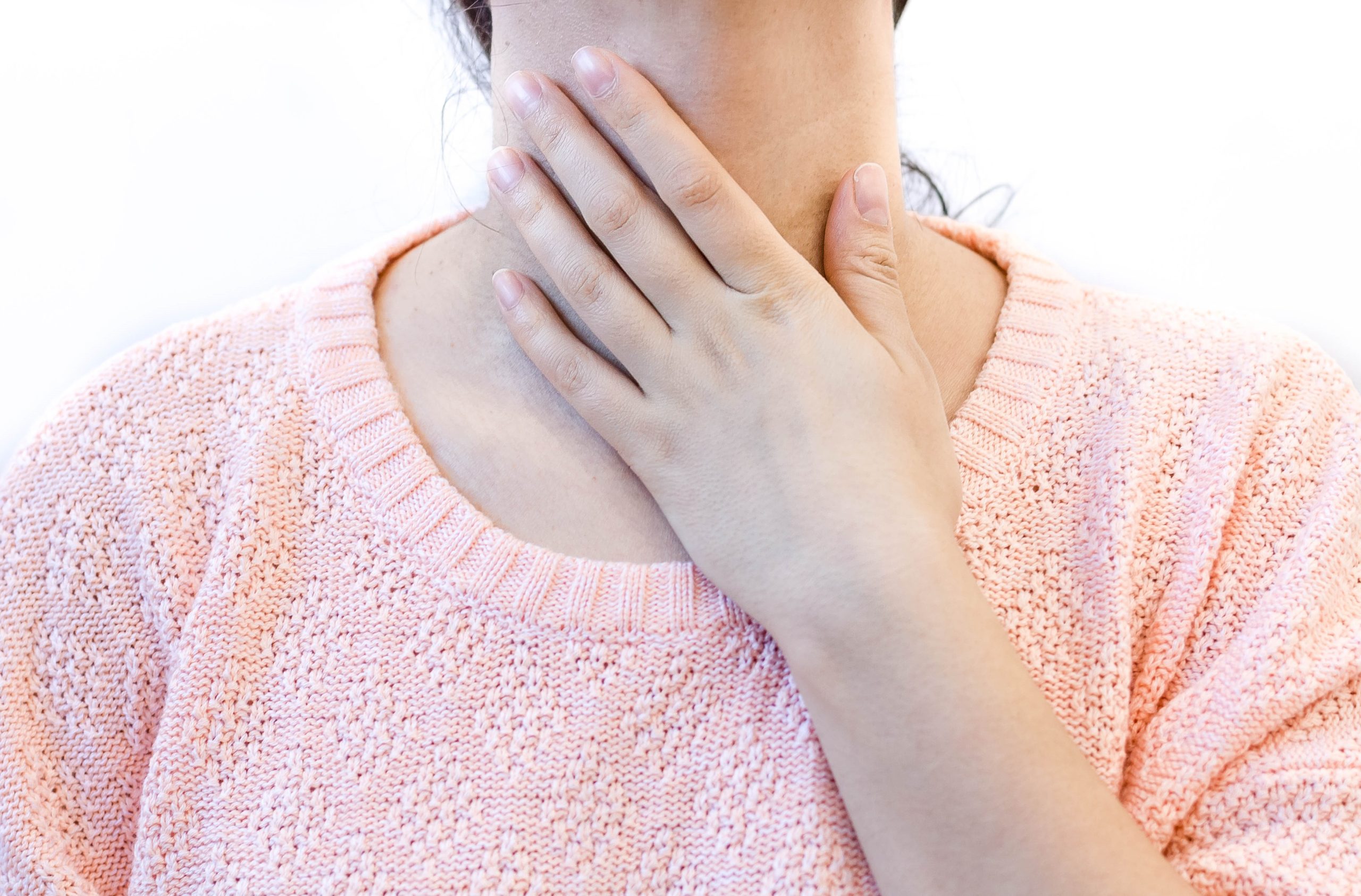Women's Health
6 Common Misconceptions About Feminine Hygiene

Practising good feminine hygiene is vital to prevent infections and maintain overall health. However, with all the information that’s available on the internet, one might feel overwhelmed trying to figure out between myth or fact. Add to that the plethora of product choices available catering to feminine hygiene these days and it gets even more confusing.
Read on to learn about the 6 most common feminine hygiene myths below:
1. You Need Special Products to Clean Your Vagina
First of all, it is important to distinguish between the vagina and vulva.
The vagina is an internal muscular part of the female genitals. In fact, it has the ability to self-clean and like any other internal organ, does not need any extra cleansing. Vaginal flora consists of the colonies of bacteria that keep the vagina healthy. Washing, particularly with products containing synthetic ingredients, can disturb the balance of “good” and “bad” bacteria.
On the other hand, the vulva is the outer area that surrounds the vagina. It includes the opening of the vagina, outer and inner lips, and the clitoris. The truth is, you do not need to use special products for your vulva. You can clean the external area by simply washing it with lukewarm water. If you wish, you may use a mild, unscented soap. After that, you should rinse the vulva properly and gently pat the area dry as moisture can stimulate the growth of yeast.
2. Vaginal Discharge Means Yeast Infection
Vaginal discharge is absolutely normal. It has several important purposes, such as cleaning and moistening the vagina along with preventing and fighting infections. Secretions produced by the cervix (neck of the womb) removes bacteria and dead cells keeping a healthy balance of vaginal flora, also known as the vaginal microbiome.
Characteristics of vaginal discharge vary throughout your menstrual cycle. For example, at the beginning of the cycle, discharge tends to be thin and sticky. As you approach ovulation, secretions will become stretchy and mucous-like, resembling raw egg white. Typically, healthy discharge does not have a strong odour or colour and should not cause any significant discomfort.
However, changes in your vaginal discharge along with itching and soreness around the area may be a symptom of an infection. Abnormal discharge can be caused by bacterial vaginosis, yeast infection, or trichomoniasis. If symptoms persist, you should consult a gynaecologist for a diagnosis and medical treatment.
Find out more about bacterial vaginosis and yeast infection here: https://www.sog.com.sg/resource-center/yeast-infection-vs-bacterial-vaginosis-what-is-the-difference/
3. Vaginal Odour is a Sign of a Sexually Transmitted Infection (STI)
That is not always true. Every vagina is supposed to have its own distinct scent and vaginal odour varies depending on the time of your menstrual cycle, which may be more distinct when you sweat or right after sexual intercourse.
In most cases, vaginal odour (often described as a fishy smell) is one of the common symptoms of bacterial vaginosis. Bacterial vaginosis is not an STI and happens when there is a change in the normal balance of vaginal bacteria. On the other hand, yeast infections are typically not associated with unusual vaginal odours.
Common sexually transmitted infections (STIs) such as Trichomoniasis (trich) – caused by the parasite Trichomonas vaginalis – can lead to vaginal odour. Other STIs such as chlamydia and gonorrhoea usually do not cause vaginal odour.
As a rule, if you only have vaginal odour without any other symptoms, it’s unlikely that your vaginal odour is a signal of any condition. However, if you experience additional symptoms such as abnormal vaginal discharge, itchiness, redness, or a burning sensation, you should consult your O&G specialist for medical treatment.
Latest Articles
How Are Abdominal Hernias Treated?
What to Expect from Colorectal Surgery
How to Treat Breast Inflammatory Conditions
Gynaecomastia: Understanding Male Breast Cancer
4. Douching Maintains Balanced Vaginal pH
In reality, it is quite the opposite. Douching is the process of expelling a liquid (water-soap or vinegar-water mixture) into the vagina to clean it and get rid of the odour. These products often contain synthetic fragrances that can upset natural balance inside the vagina. Making douching a normal part of your feminine hygiene routine may disturb vaginal pH balance and could lead to inflammation. Furthermore, women who douche regularly are at a higher risk of getting cervical cancer and pelvic inflammatory disease.
As the vagina is a self-cleaning organ with a complex mix of living organisms, douching is not only unnecessary but may also be harmful. If you are suffering from bacterial vaginosis or yeast infection, douching may push the bacteria further up to other parts of your reproductive system.
5. Feminine Sprays are Harmless
Many women are concerned with vaginal odour and use feminine sprays that claim to eliminate it. Although not sprayed right into the vagina, these sprays are still able to irritate the sensitive skin of the vulva.
It is natural for the vagina to have an odour and every woman’s odour is different. A healthy scent is typically described as “fleshy” or “musky”. Hormonal changes associated with the menstrual cycle, pregnancy, or menopause may slightly alter vaginal odour. However, if you spot a strong smell together with discomfort in the vaginal area, trying to mask the odour with a feminine spray is not the best solution. You should consult your gynaecologist to determine if there is a cause for concern and receive prompt medical treatment.
6. Underwear Choice is Not Important
When it comes to choosing underwear, going for 100% cotton is recommended as it is the most gentle and natural fabric for your skin. On top of that, it is breathable and absorbs moisture easily. This is crucial because it will absorb vaginal discharge without trapping any unwanted moisture.
Underwear made of silk, nylon, polyester, and other synthetic materials are not very breathable and tend to trap moisture. Wearing synthetic underwear regularly can also cause chafing and redness, which may lead to conditions such as yeast infections.
Conclusion
Keeping good feminine hygiene is essential for every woman’s health. The vagina is designed to keep itself clean with the help of natural secretions (vaginal discharge). Therefore, you do not need to use any special products like soaps or douches to clean the vagina. In fact, they may disrupt a fragile balance of good and harmful bacteria colonising the reproductive tract. Always opt for breathable underwear made of cotton, as it absorbs excessive moisture preventing bacterial outgrowth, which is beneficial for your vaginal health.
WHO WE ARE
About SOG Health Pte. Ltd.
Established in 2011, SOG Health Pte. Ltd. (“SOG”) is a leading healthcare service provider dedicated to delivering holistic health and wellness services to the modern family.
With a long and established track record in Singapore providing Obstetrics and Gynaecology (“O&G”) services such as pre-pregnancy counselling, delivery, pregnancy and post-delivery care, the Group has since further expanded its spectrum of healthcare services to include Paediatrics, Dermatology, and Cancer-related General Surgery (Colorectal, Breast & Thyroid).
The Group’s clinics, under its four operating segments of O&G, Paediatrics, Oncology and Dermatology, are strategically located throughout Singapore to provide easy access to its patients.
- Obstetrics
- Gynaecology
- GynaeOncology
- Breast, Thyroid & General Surgery
- Colorectal, Endoscopy & General Surgery
- Dermatology
- Paediatrics
Consult With A Specialist From SOG
Visit one of our specialists today to learn more about your health!
Recommended Specialists
Book An Appointment
Fill up this form and our clinic will get back to you shortly.
For general enquiries, please click here.








